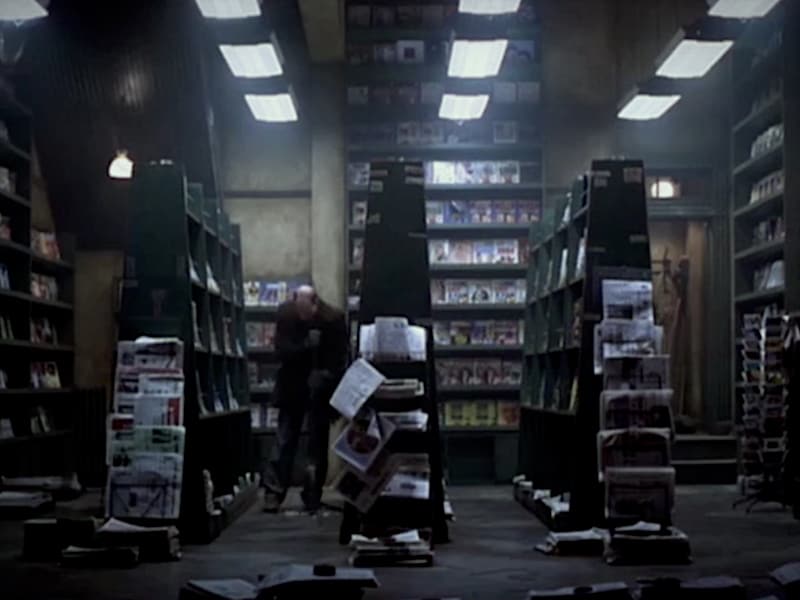
With the bright, pollen-laced rays of sunshine finally emerging from winter, it’s the perfect time to stay indoors and mull over David Fincher’s cobalt blue landscapes.
The second entry in The Directors Series’s exploration of the grungy auteur’s work has arrived, building from the hellish nature of his Alien 3 shoot (which the series looked at in the first entry). Filmmaker and Directors Series mastermind Cameron Beyl explains how Fincher’s entry into feature filmmaking through the studio door sent him running back into the open arms of television commercials.
Naturally, those commercials (for Nike, Levi’s, and others) would contain some of the motifs that Fincher still hasn’t shifted away from two decades later. Blues vs Oranges, derelict futurism and shadows. Oh, so many shadows. After finding fantastic success, Fincher returned to cinema with a movie unencumbered by franchise fatigue: Se7en.
What’s most interesting in this dissection is the consistent conversation between influential directors, Fincher, and commercial entities. Fincher’s love of Stanley Kubrick didn’t stop simply because he scored a contract to put Charles Barkley into an opera for Nike, and his use of a NIN song in Se7en predicts his future collaboration with Trent Reznor.
In a medium that can often be stale and schticky (you’re selling a product after all), Fincher remained in dialogue with the ancients in order to bring masterful touches and outright homage to shilling for shoe companies and sugar water. His Blade Runner-infused spot for Coke is the most blatant, and Beyl rightfully spends a healthy amount of time breaking down its component parts.
Then there’s Se7en, which Beyl offers as one last chance for Fincher in the feature filmmaking world and a case of redemption as well. I don’t know that I fully agree with that, considering both Fincher’s aptitude and aspirations. With Alien 3, he was a music video and commercial director given the reigns on a sunsetting franchise (which seems bizarre by today’s standards of keeping everything, including Alien, alive forever and ever and ever). Not only was it the early 90s riff on a series that started in the 70s, but it was also a time when sequels simply weren’t expected to make bank or be all that entertaining. They were usually either tax right-offs, contractual obligations, or a final attempt to squeeze the last bit of blood from a once-popular stone. Fincher’s frustration with studios was understandable, but to think that he blew a legitimate early shot isn’t totally accurate. Especially when you consider Hollywood’s inability to let some careers die.
Still, it sets the stage beautifully for viewing Se7en as a real shocker: a sophomore effort that was both critically and commercially astonishing. Beyl’s examination of the film is spot-on, discussing not only the shocking nature of the story but of how Fincher is able to place us (claustrophobically) into the mental space of each character.
If you want to stay indoors with all the windows closed after watching this, you should check out the Every Frame a Painting video essay on what Fincher doesn’t do in his films. It makes for an excellent companion.
Related Topics: David Fincher

